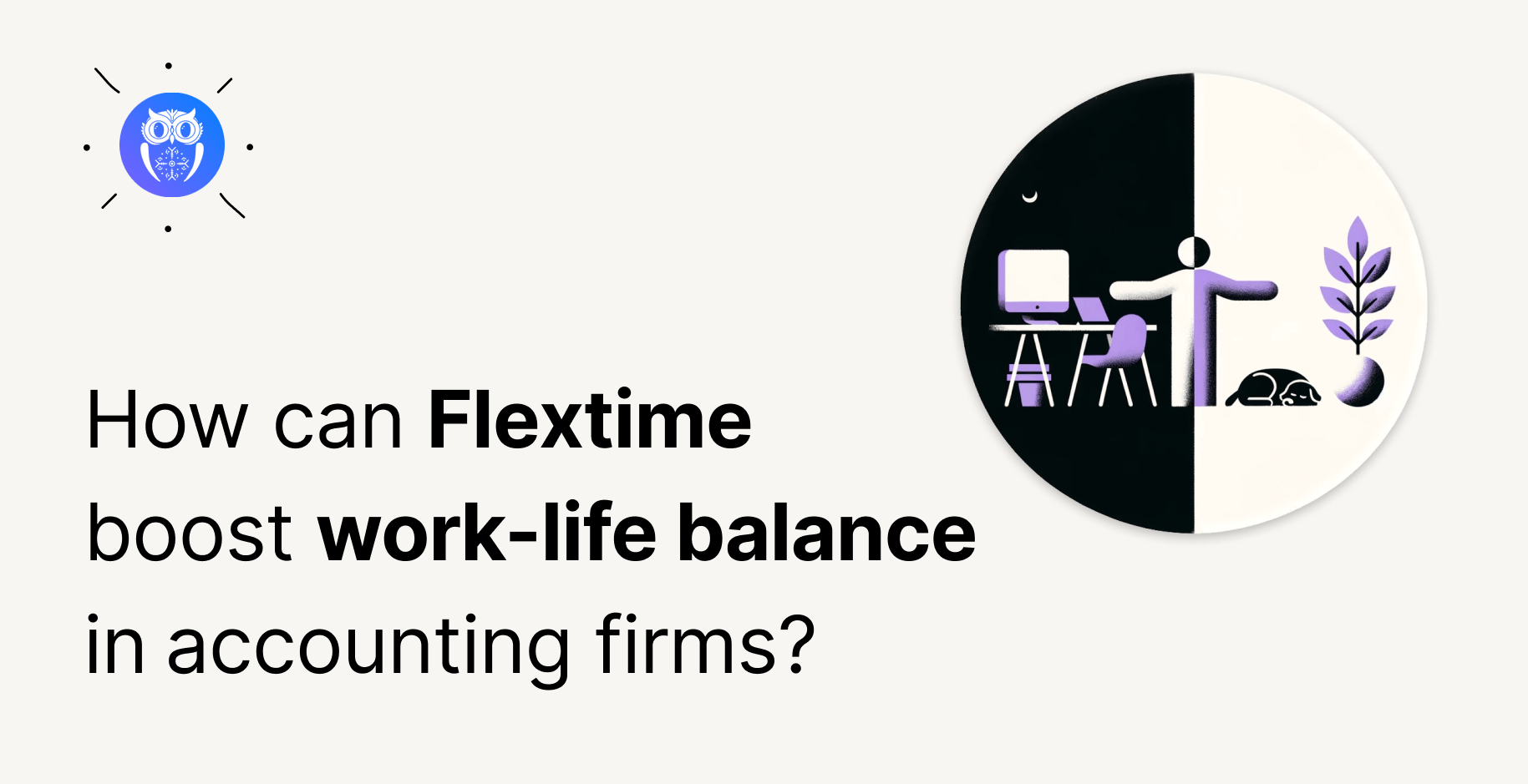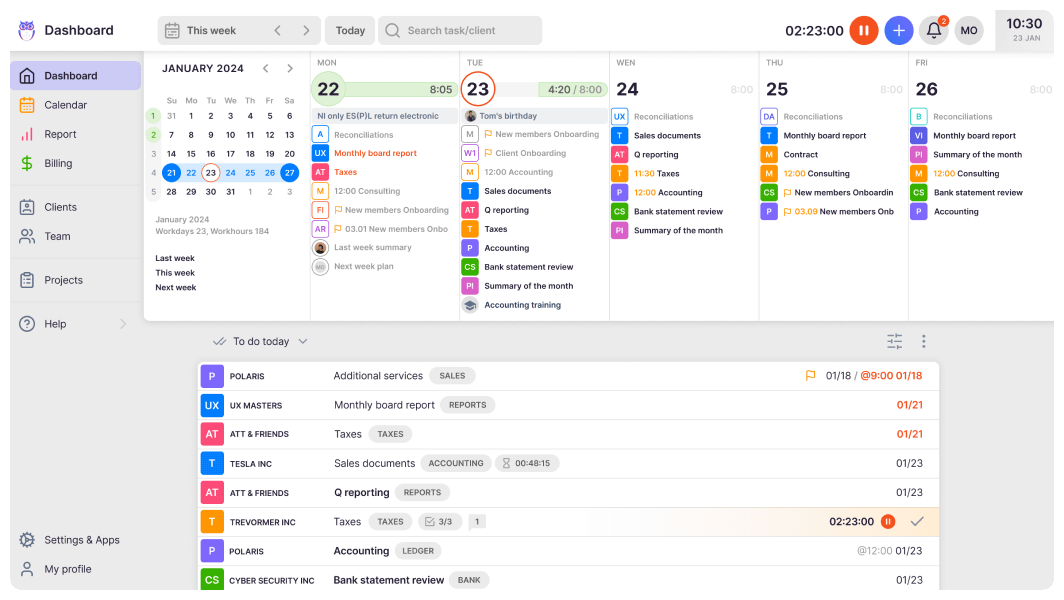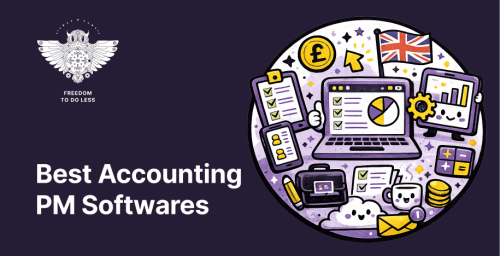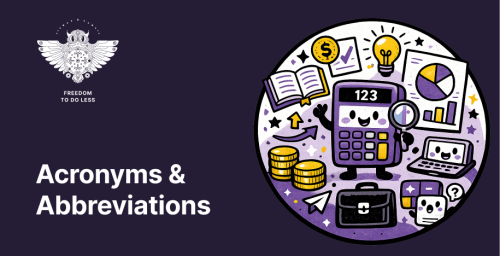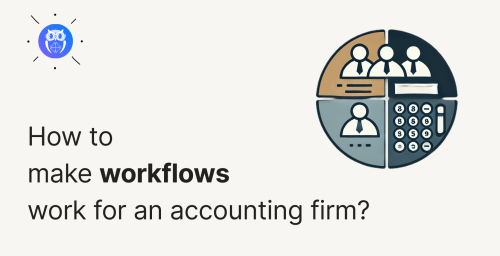Work-life balance has become a priority, and flextime has become a popular work arrangement. Originating from the Nordic countries, flextime, a dynamic work arrangement, gives employees control over their schedules, improving efficiency and employee well-being. Creating work-life balance requires a flextime manager to create the system with the right tools, such as Uku’s Flextime feature.
How to implement flextime so that everyone is on the same page?
What is Flextime?
Flextime revolutionises traditional work hours by saying goodbye to the 9-to-5 schedule. Employees now have the opportunity to optimise their work schedules to align with their peak productivity hours or have a chance to run errands, like going to the doctor, during regular working hours.
Pille Reiljan, Director of Operational Excellence and Process Development at Leinonen Group, shared her valuable insights on the distinction between working and personal life. Leinonen also uses Flextime to manage the overhours and vacation days of 300 employees.
“Through many years and perhaps not the brightest moments, I have realised that working life and private life are very different things.”
Read more about Leinonen’s experience.

The positive impact of Flextime management on employees
Flextime helps employees recognize their most productive hours
Employees can achieve peak performance by organising the workday around their most productive hours. This approach recognises the individual’s unique circadian rhythm, the 24-hour cycle that regulates sleep and wakefulness. By leveraging this rhythm, employees can concentrate better, stay motivated, and deliver exceptional results.
Working during your unique productivity periods gives you a higher ability to concentrate, leading to more motivation and exceptional results.
The role of a small business coach becomes invaluable in the complexities of work arrangements. A small business coach can help managers implement flextime effectively, ensuring it aligns with the company’s goals and employees’ needs.
It’s a powerful solution for achieving work-life balance and boosting productivity in the accounting profession. By embracing flexible working hours, accountants have control over their schedules, avoid burnout, and achieve higher job satisfaction.
Increased employee satisfaction
Flextime gives employees ownership of their work schedules. This sense of autonomy and trust cultivates a positive work environment, increasing job satisfaction. When employees feel valued and have the flexibility to balance their personal and professional lives, they become more committed to their work and strive for excellence.
Avoid overworking and burnout in employees
Tracking working time is not a way to control employees, but allows to identify extra hours invested in work, helping them manage overtime and get well-deserved time off.
The World Health Organization estimates that over 745,000 people worldwide suffer from heart disease due to working more than 55 hours per week.
An additional 20 minutes daily can accumulate to nearly an entire workday in a month. This could be an extra vacation day every month.
Flexible working hours also give employees the independence to manage work schedules according to their needs. Doctor visits or picking up children from school are common scenarios where flexibility is crucial. With flextime implemented, employees can attend to these responsibilities without compromising professional commitments. The ability to decide when and where to work allows professionals to achieve a healthier work-life balance and avoid burnout.
Flexible work time is a way to attract and retain employees
In the competitive job market, attracting and keeping skilled professionals is crucial.
A study conducted by ManpowerGroup Solutions found that 40% of global workers say flexibility is among the top three factors to consider when making a career decision.
Attract and hold top talent in your business
Accounting offices can position themselves as desirable workplaces, gaining a competitive advantage in the talent search.
Flextime has revolutionised the modern workplace, offering a win-win situation for both employees and employers.
By embracing flexible work arrangements, accounting offices can unlock the potential for increased productivity and job satisfaction and hire the best. It’s time to recognise the power of flextime and harness its benefits to create a thriving and efficient workplace.
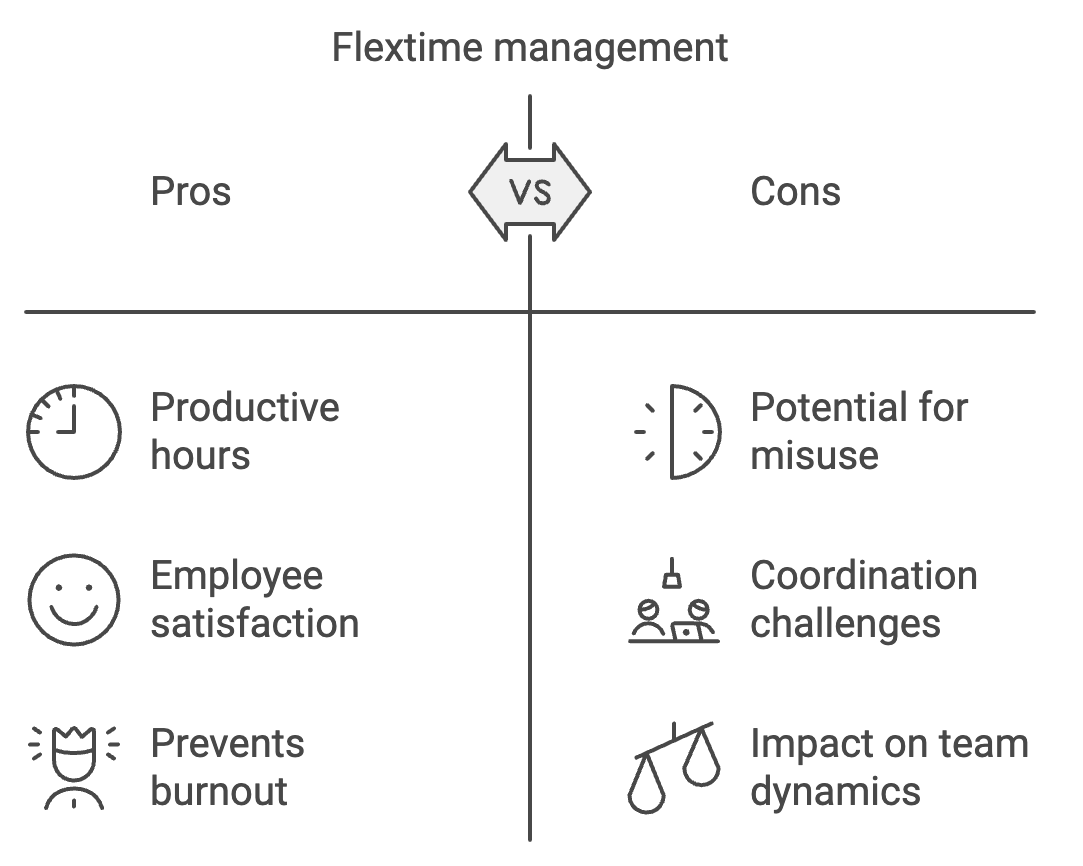
Say goodbye to arhaic strict working hours with Flextime
Gone are the days when the conventional 9-to-5 work schedule was the standard, especially in industries requiring rigid working hours. Flextime emerged as a response to the changing nature of work, emphasising the importance of achieving success while focusing on personal well-being and family.
How to be a Flextime manager?
Flextime managers must establish clear guidelines and maintain open communication to employ flexible working time. Here are some essential tips for implementing flextime in a way that avoids any misinterpretations:
Highlight the positive aspects of time tracking at work
When introducing flextime to employees, emphasise the benefits of time flexibility. It accommodates their needs, allowing them to work during their most productive hours and manage personal errands.
Address overtime concerns of employees
Communicate how overtime will be compensated: through additional salary, extra vacation days, or discuss various types of long-term incentives. This transparency reassures employees and demonstrates the organisation’s commitment to fair compensation, not the need to control employees.
Utilize communication apps to enhance collaboration when working remotely
Implement suitable communication apps that enable seamless collaboration and information sharing, particularly when employees are not available simultaneously. These apps ensure efficient communication and maintain productivity even in a flexible work environment.
Read more about useful apps for accountants.
Simplify the reporting of working hours with software
For example, Uku, the accounting practice management software, offers a user-friendly interface that simplifies the flextime management process. It enables accountants to track their time, monitor work progress, and ensure that tracked time matches client agreements.
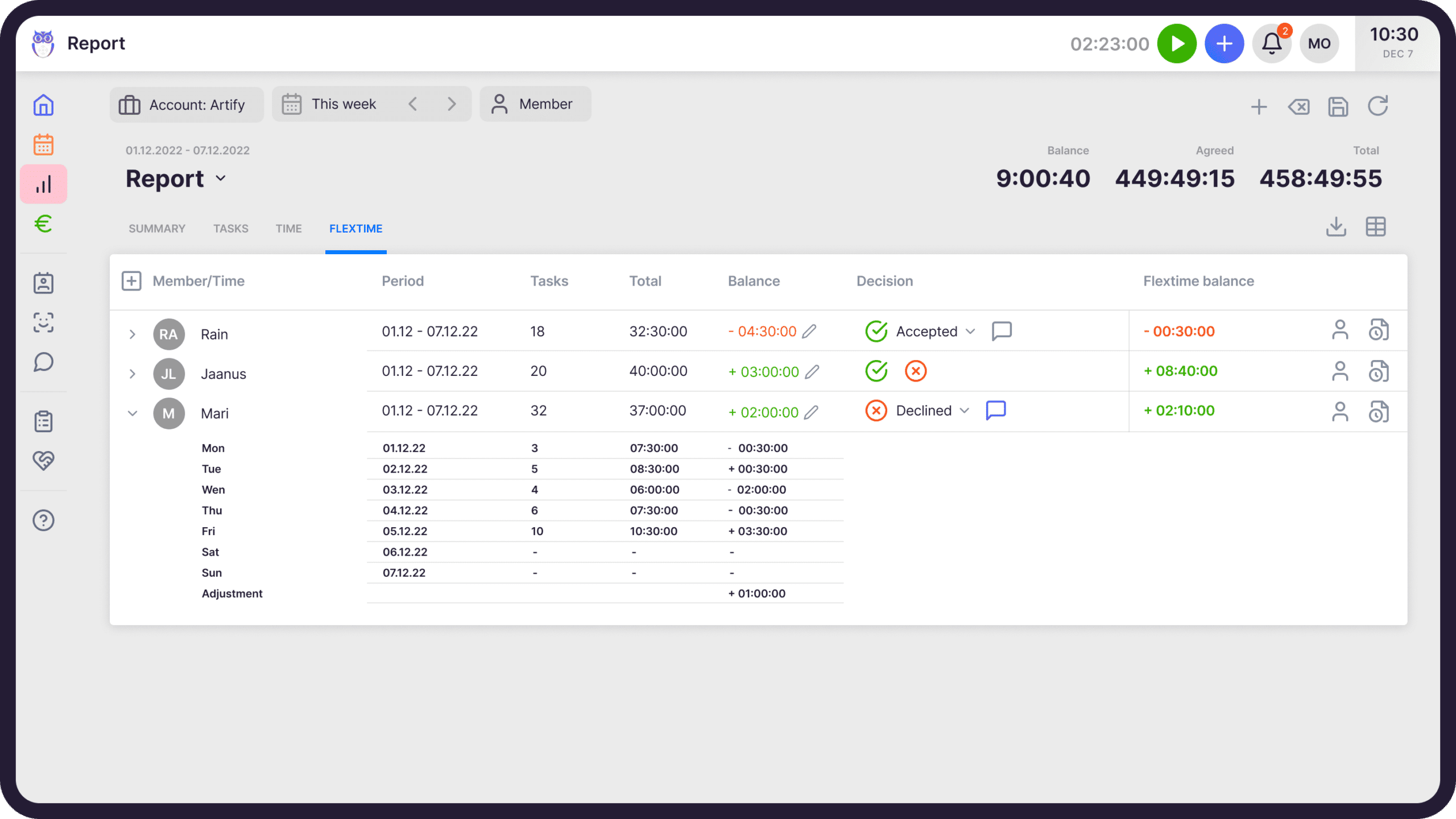
Additionally, businesses can benefit from the versatility of the HR software systems. Much like Uku, the SenseHR software system caters to the needs of businesses.
It comprehensively manages employee time records and flextime arrangements. It empowers accountants to monitor their working hours and oversee project progress. HR systems also offer advanced features such as employee performance tracking, onboarding, and analytics, enhancing workplace efficiency and optimizing HR processes.
In addition, Uku has many other ways to make work easier. Read more about them here >
Uku’s Flextime feature is here to make accountant’s life easier
I’ve got an easy hack for you to implement flextime. Uku’s flextime feature allows accountants to manage their time effectively and prioritise their well-being. Here are some key features that make Uku an empowering assistant:
- Approve time entries – Uku allows for weekly or monthly approval of time entries, depending on your office’s preferences.
- Customisable working hours – Set the standard number of working hours per week according to your company’s needs, as only some follow a traditional 40-hour workweek.
- Calculates working hours – Enter the agreed-upon length of the working day to ensure accurate calculation of holidays and total working hours, ensuring precise calculations
- Considering weekends and public Holidays – Activate settings that treat weekends and public holidays as working hours to ensure accurate calculation of holidays and total working hours.
- Vacation days and absences – Easily enter vacation days or absences, allowing Uku to calculate working hours correctly.
- Flextime credit requests – Accountants can request flextime credit as either vacation time, with final approval required from the admin member.
Flextime allows accountants to find more joy in their work while achieving a more balanced, fair and fulfilling professional life.
Say farewell to the constraints of traditional work schedules and welcome to a balanced approach that aligns work commitments with personal aspirations.
If you want to learn more about flexible working or Uku’s flextime tool, listen to the Flextime webinar.





